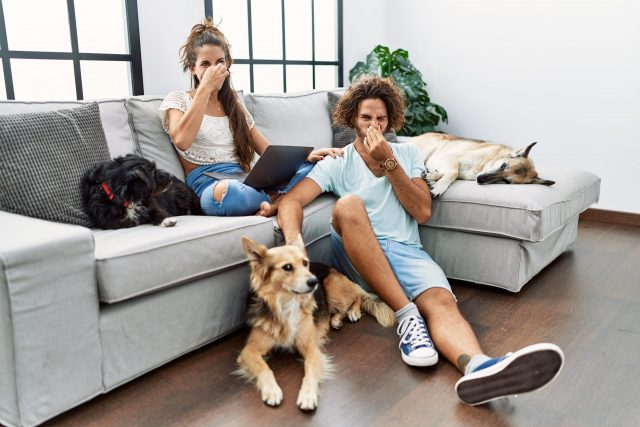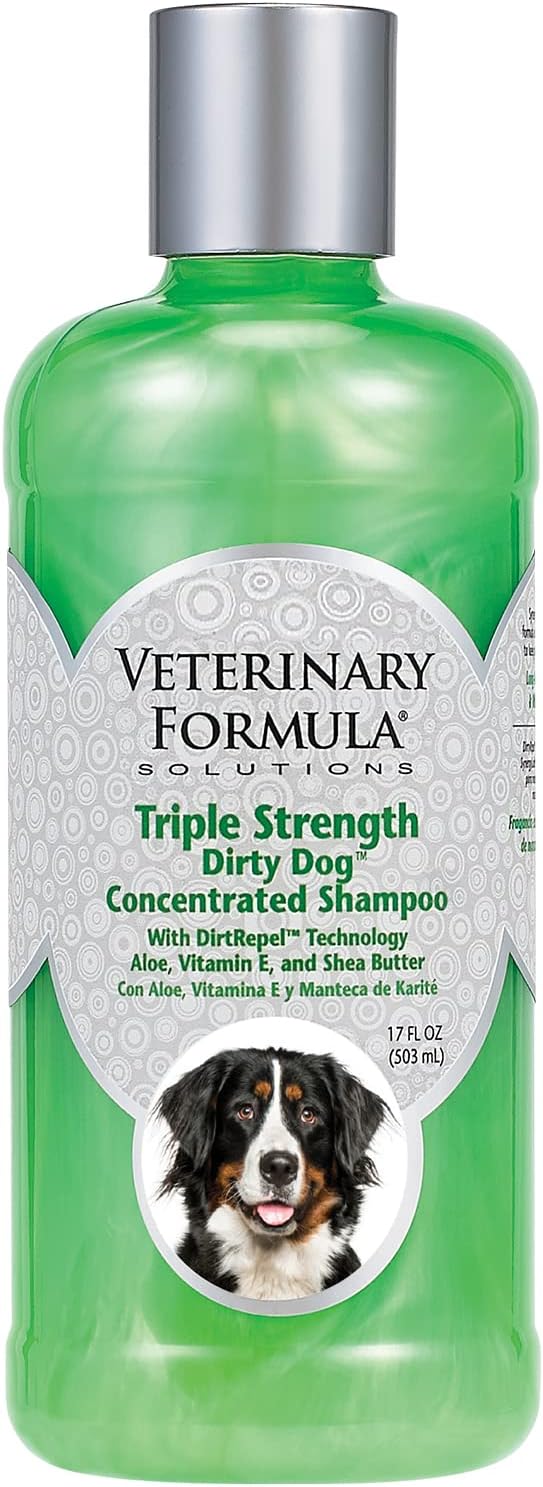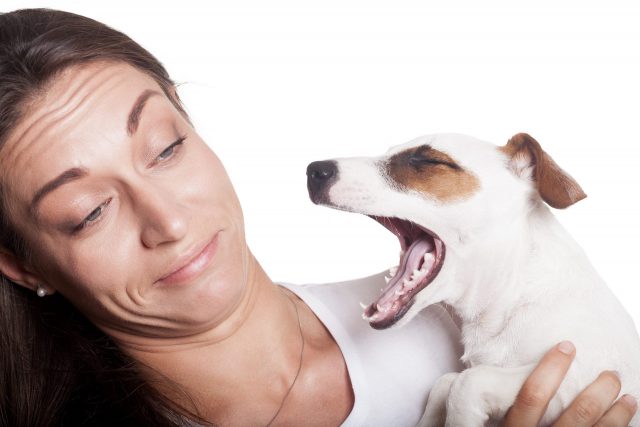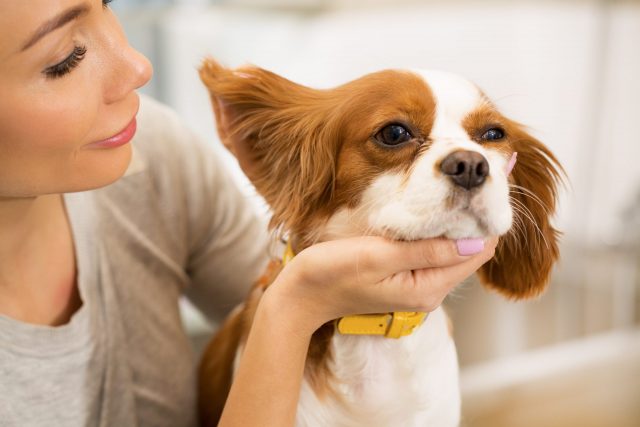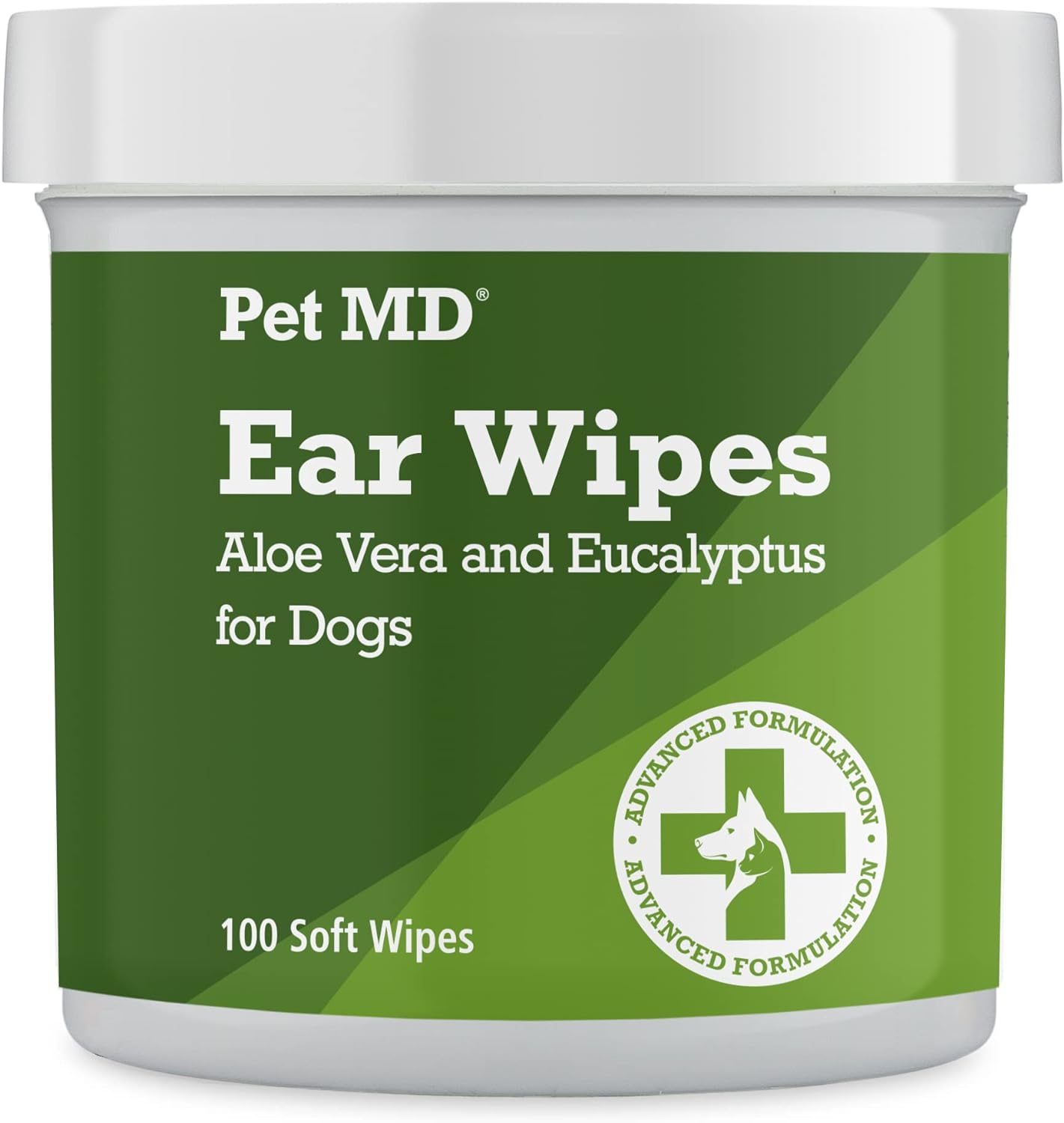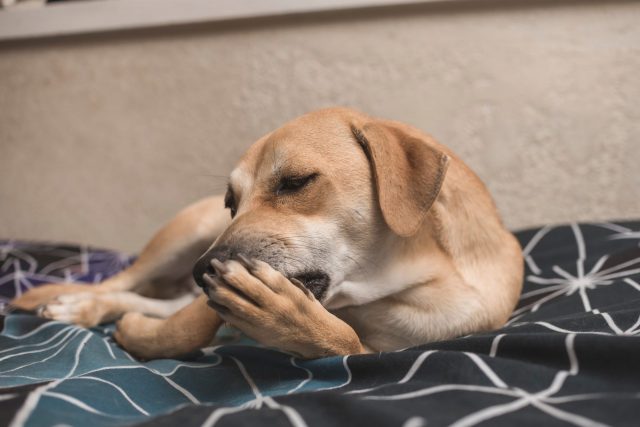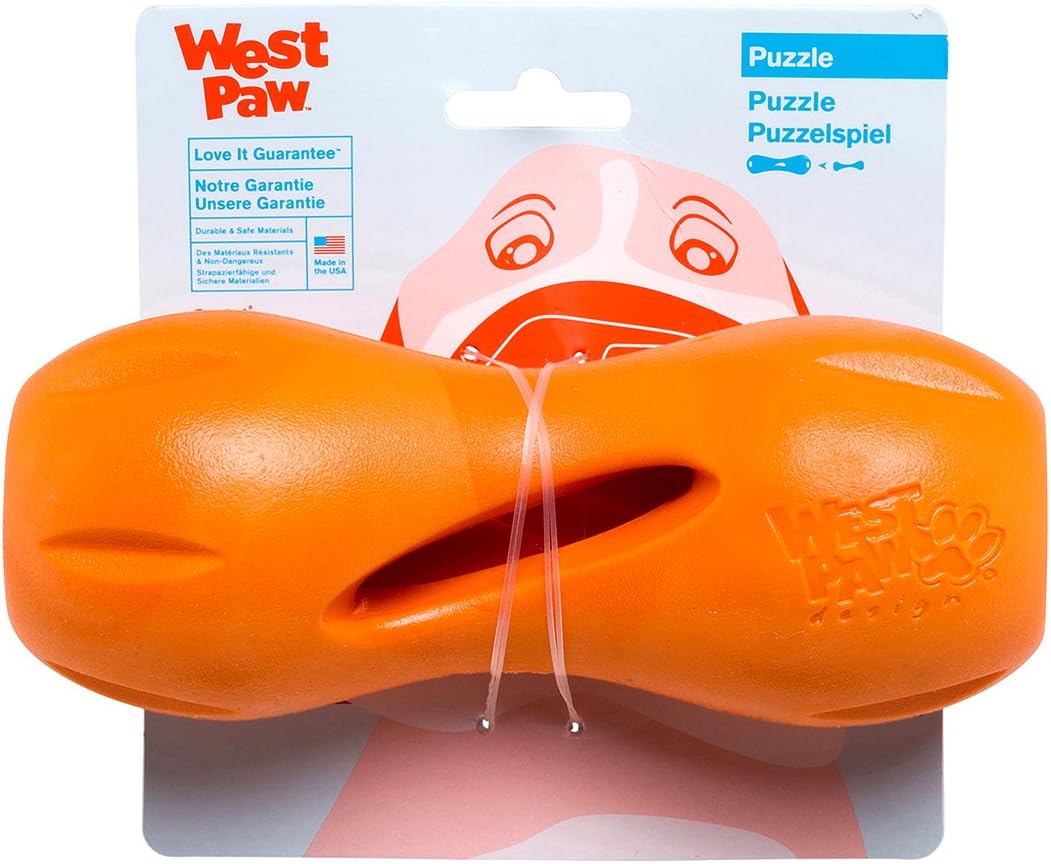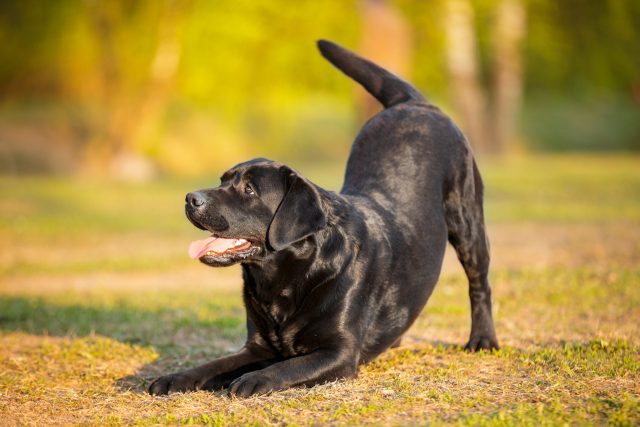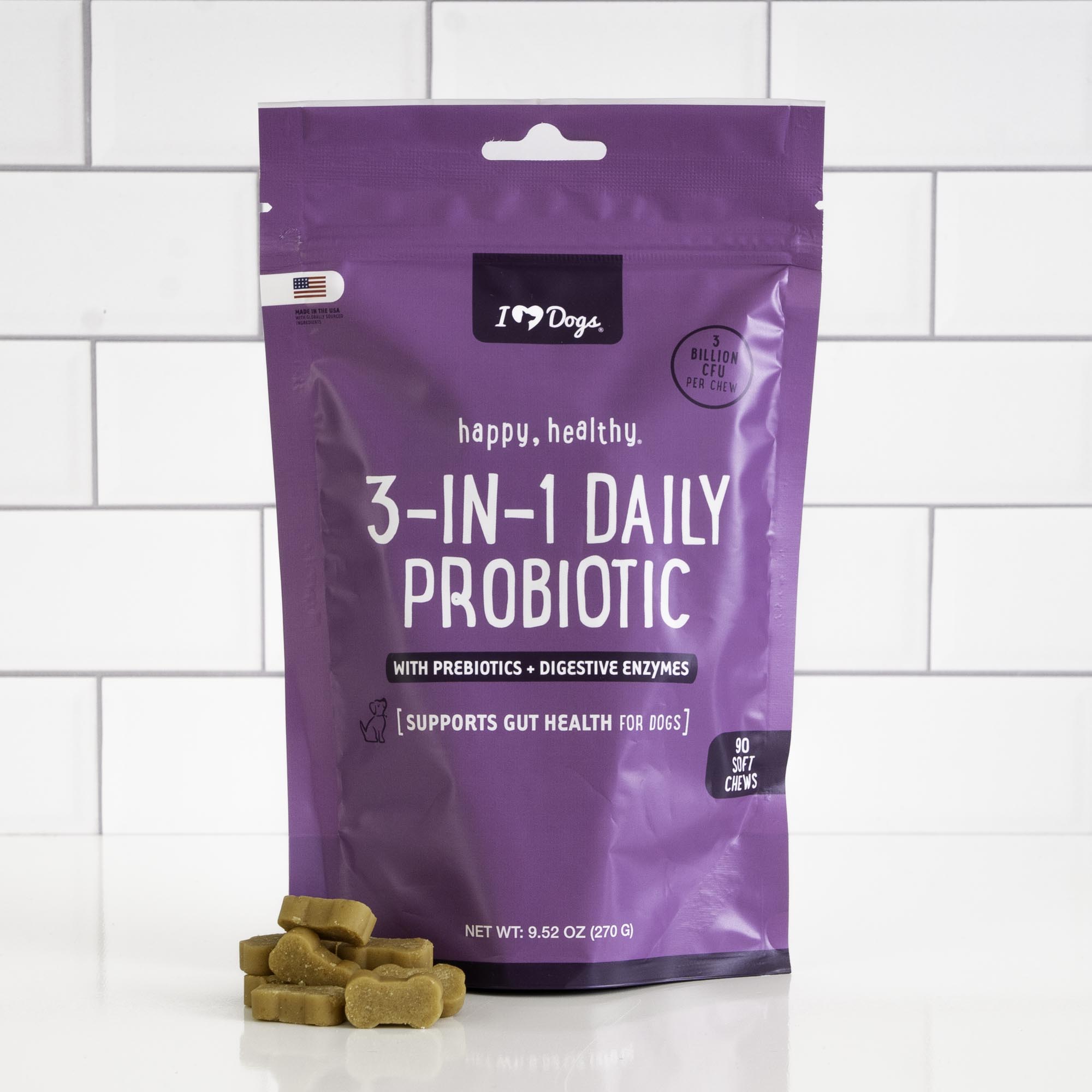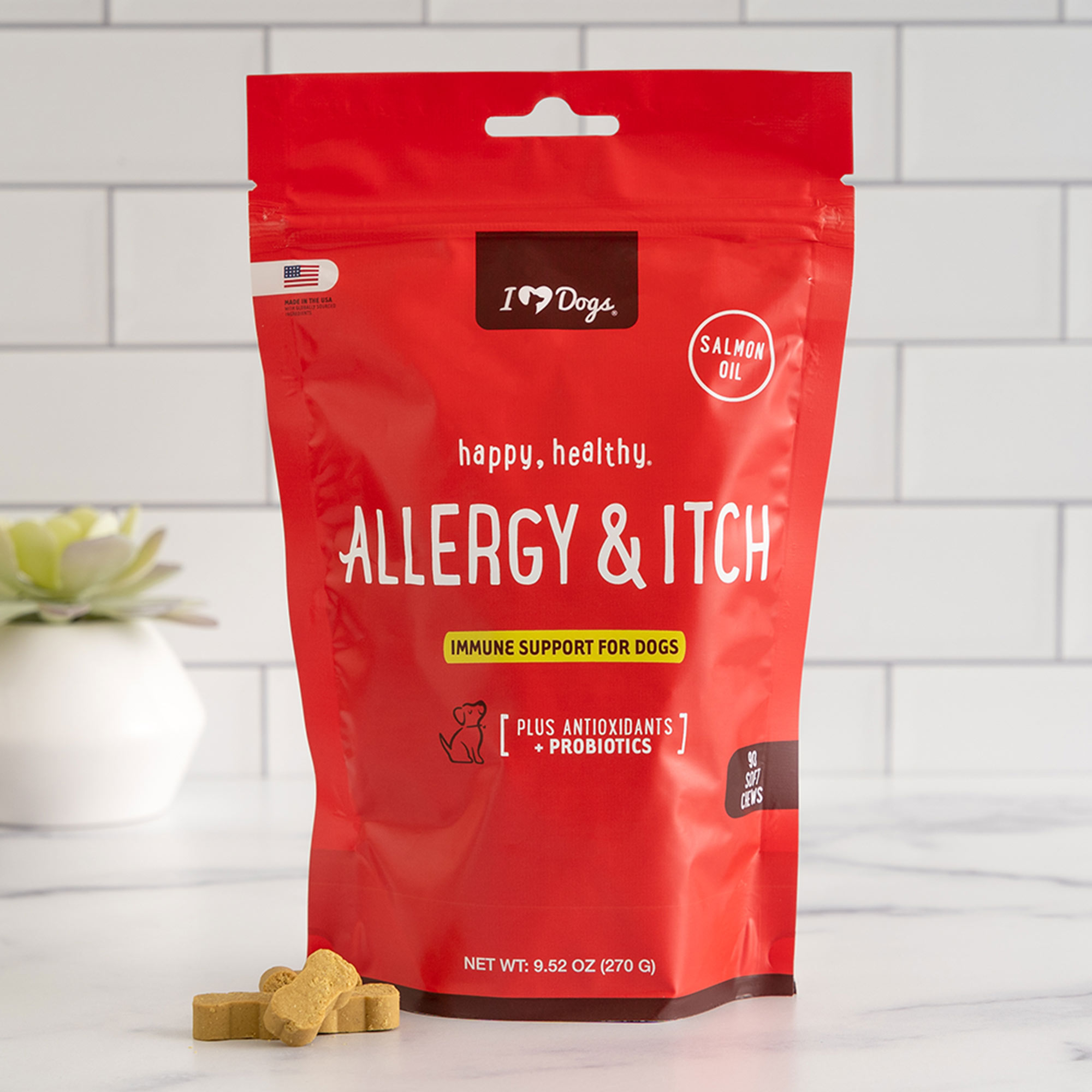iHeartDogs is reader-supported. When you buy via links on our site, we may earn an affiliate commission at no extra cost to you.
Got a dog that stinks no matter what you do? You’re not alone in this common canine conundrum. Dogs, with their adventurous spirits and instinctual behaviors, often come with a range of natural odors. While some of these smells are just part of the doggy package, others can be indicative of underlying health issues. This article aims to demystify the world of dog odors, helping you understand the difference between harmless doggy smells and those that warrant a trip to the vet. From their natural scent-marking behaviors to more concerning signs like persistent bad breath or ear infections, we’ll explore the various reasons behind your furry friend’s fragrances.
We’ll also delve into practical steps you can take to address these odors, from proper bathing techniques to knowing when it’s time to consult your vet. So, let’s sniff our way through the facts and find out how to keep your pup smelling fresh and staying healthy!
Why Dogs Make So Many Smells
Dogs have a unique way of experiencing the world, and their sense of smell plays a central role in this. Unlike humans, dogs use their powerful noses to communicate, explore, and understand their environment. This reliance on scent is a big part of why they might have smells that are normal and even necessary for them, while maybe not the most pleasant to us.
Normal Doggy Smells
- Natural Body Odor: Just like humans, dogs have a natural body odor. This scent is produced by oils in their skin and can vary depending on the breed and individual dog.
- From the Mouth: Dog breath isn’t always the freshest, especially after they’ve had a meal or found something smelly to chew on.
- Ears: A dog’s ears can be a source of smell, often a yeasty or slightly musty odor, especially if they’re floppy and don’t get much air circulation.
- Paws: Believe it or not, a dog’s paws can smell like corn chips or popcorn! This is due to bacteria and fungi that are generally harmless but can produce a distinctive scent.
- Anal Glands: Dogs have anal glands that can emit a strong, musky odor. This is usually noticeable when they’re scared or excited.
In discussing dog stink, we mustn’t forget the canine urge to roll in smelly things! This natural behavior stems from their instinct to mask their scent with that of their environment—a throwback to their wild ancestors. Dogs often roll in strong-smelling substances, including the droppings of other animals like rabbits. This behavior can be traced back to their roots as hunters, where masking their scent was a strategy for stealth.
Sometimes, though, it’s not about disguising their own scent but about adding a new scent to their repertoire. Whatever the reason for the stink roll, if you realize your pup has been squirming in stink, a bath is the next step. The Veterinary Formula Solutions Triple Strength Dirty Dog Concentrated Shampoo can help in the case of big stinks as it’s specifically designed for dirty and smelly dogs. With a triple-strength formula, it effectively cleans and deodorizes even the most odor and dirt-ridden dogs.
Bathing and Grooming Your Dog to Control Odors
Maintaining your dog’s hygiene through regular bathing and grooming is crucial not only for their appearance but also for their overall health and odor control. Bathing your dog helps in removing the dirt, oil, and bacteria that can cause unpleasant odors. It is essential for managing skin conditions like infections or seborrhea, which can contribute to bad smells. Additionally, regular baths can help reduce allergens present on your dog’s skin, beneficial for both the pet and people with allergies. To make bath time easier for you and your buddy, the Booster Bath Elevated Dog Bathing & Grooming Center keeps your dog elevated and safely contained while allowing easy access from all angles.
Alongside bathing, grooming plays a vital role in your dog’s health. Regular brushing removes loose hair, distributes natural skin oils, and keeps the coat free of mats, which can trap odors. It also allows you to inspect your dog’s skin and coat for any signs of health issues, such as lumps, parasites, or skin abnormalities, enabling early detection and treatment. Grooming isn’t limited to coat care; it also includes nail trimming and ear cleaning, preventing problems that might lead to unpleasant odors. Check out these 7 Best Dog Vacuum and Grooming Kits to make an easier time of your dog de-stinking routine!
The frequency of bathing your dog varies depending on factors like breed, coat type, skin sensitivity, and lifestyle. For many dogs, a monthly bath is sufficient, while regular grooming activities like brushing should be a more frequent routine, ideally several times a week. Regular grooming not only keeps your dog looking and smelling pleasant but also strengthens the bond between you and your pet. Consistent bathing and grooming are indispensable in keeping odors at bay and ensuring your dog remains healthy, comfortable, and a joy to be around.
RELATED: The 24 Best Grooming Tools For Dogs
When Doggy Smells Signal Health Concerns
While it’s true that dogs naturally have their own set of odors, certain smells can be red flags indicating potential health issues. When your dog’s normal bathing/grooming routine and dental care isn’t cutting through a bad smell, important to recognize when a peculiar odor might mean a trip to the vet is necessary. Here are some key smells to be aware of:
#1 – Persistent Bad Breath in Dogs
While it’s normal for dogs not to have minty-fresh breath, persistent bad breath is a different story and can be a sign of underlying health issues.
Potential Causes of Persistent Bad Breath
- Dental Problems:
- Gum Disease: Just like humans, dogs can suffer from gum disease (periodontal disease), which is caused by plaque and tartar buildup on the teeth. This can lead to swollen, bleeding gums and, of course, bad breath.
- Tooth Decay: Broken or decaying teeth can also contribute to bad breath. Bacteria in the damaged areas of the tooth can emit unpleasant odors.
- Gastrointestinal Issues:
- Dietary Indiscretions: Sometimes, eating something they shouldn’t (like garbage or spoiled food) can lead to bad breath.
- Digestive Disorders: Conditions like reflux, gastritis, or intestinal issues can also cause chronic bad breath in dogs.
- Other Health Concerns:
- Kidney Disease: In some cases, bad breath might signal more serious health issues like kidney disease, where the breath may have an ammonia-like smell.
- Diabetes: A sweet or fruity breath could be a sign of diabetes, especially if it’s accompanied by increased drinking and urination.
What You Can Do
Regular Dental Care:
Maintaining good dental hygiene is crucial. Regular brushing, dental treats, and professional cleanings can prevent many dental issues. iHeartDogs Brushy Sticks Dental Treats For Dogs offer an easy addition to your pup’s oral care. Just hand them a stick and watch as they chew their way to cleanliness!
Check Their Diet:
Ensure your dog is eating a balanced diet and isn’t accessing garbage or spoiled food. If it’s time to switch up your dog’s dinner, take a look at these 8 Best Dog Foods.
Watch for Other Symptoms:
If bad breath is accompanied by other symptoms like weight loss, vomiting, or changes in appetite, it’s especially important to see the vet.
When to See the Vet
If your dog’s bad breath persists despite good oral hygiene, or if you notice other worrying symptoms, it’s time for a vet visit. Your veterinarian can perform a thorough check-up, including dental examination and possibly blood tests, to pinpoint the cause of the bad breath and recommend the best course of treatment.
#2 – Ear Odor and Discharge in Dogs
Ear problems in dogs can be uncomfortable and, if left untreated, can lead to more serious issues. It’s important to recognize the signs and understand the potential causes to ensure proper care and treatment.
What Ear Odor and Discharge Could Mean
- Possible Causes:
- Ear Infections: The most common cause of a foul or yeasty smell accompanied by discharge. These infections can be bacterial, fungal (yeast), or even due to ear mites.
- Bacteria and Yeast: Warmth and moisture in the ear canal create an ideal breeding ground for bacteria and yeast.
- Ear Mites: These tiny parasites are more common in puppies and can cause a strong odor and dark discharge.
- Symptoms to Look For:
- Odor: A foul or yeasty smell is often the first sign of an issue.
- Discharge: Look for unusual discharge, which can vary in color and consistency.
- Redness/Swelling: Red or swollen ears indicate irritation or inflammation.
- Behavioral Changes: Excessive scratching, head shaking, or rubbing of ears.
What You Can Do
Regularly examine your dog’s ears, especially after baths or swimming. Here are 3 Tips For Taking Care Of Your Dog’s Ears. Clean the ears gently with a vet-approved cleaner, but avoid over-cleaning as it can irritate the ears. Pet MD Dog Ear Cleaner Wipes reduce wax build-up and removes debris with the ease of a quick wipe.
When to See the Vet
If you notice persistent odor, discharge, redness, or swelling, or if your dog seems to be in discomfort (scratching, head shaking), seek veterinary attention. The vet will examine the ears and may take samples of any discharge to determine the cause. Depending on the diagnosis, treatment may include ear drops, antibiotics, or antifungal medication. Adhere to the treatment plan and schedule follow-up visits as recommended by your vet to ensure the infection is fully resolved.
#3 – Excessive Paw Licking in Dogs
Excessive paw licking in dogs can be a sign of underlying health issues. It’s important to understand why it happens and how to address it effectively.
What Excessive Paw Licking Could Mean
- Potential Causes:
- Allergies: Allergies, whether to food, environmental factors, or irritants, are a common cause of paw licking. Dogs may lick their paws to relieve itchiness.
- Infections: Bacterial or yeast infections in the paws can arise from the damp environment created by constant licking.
- Injury or Pain: Sometimes, dogs lick their paws excessively if there’s an injury or pain, like a thorn or a sore.
- Symptoms to Observe:
- Increased Licking: Persistent or intense licking of the paws is the primary indicator.
- Redness or Swelling: Look for signs of inflammation or infection in the paws.
- Changes in Skin Condition: Check for any changes in the skin between the paw pads or around the nails.
What You Can Do
Note how often and intensely your dog licks their paws. Try to identify if certain situations or environments trigger the licking. When you find your dog licking their paws, offer a distraction, like food puzzles or let them chew on the West Paw Qwizl. There’s so much fun and goodness going on with this dog toy, your pup will be happy to shift their attention away from their paws!
RELATED: If Your Dog Constantly Licks Its Paws, Make Sure To Do This Every Day
When to See the Vet
If the licking is excessive or accompanied by redness, swelling, or changes in skin condition, consult your veterinarian. The vet will examine your dog’s paws and may perform tests to identify allergies or infections. Depending on the cause, treatment may include medication for allergies or infections, special diets, or protective paw wear.
#4 – Strong Anal Gland Odor in Dogs: Understanding and Managing
A strong anal gland odor in dogs is a common issue but should be addressed promptly to prevent discomfort and more serious complications. Recognizing what this odor signifies and knowing the appropriate actions to take are important for your dog’s health.
What Strong Anal Gland Odor Could Mean
- Possible Reasons:
- Impacted Anal Glands: Dogs have anal glands that can sometimes become impacted, causing a strong, unpleasant odor.
- Infections: If the impaction is not addressed, it can lead to an infection, further exacerbating the odor and discomfort.
- Other Signs: Along with the odor, watch for your dog scooting on the ground, licking the area, or showing signs of discomfort.
- Symptoms to Monitor:
- Persistent Odor: A constant musky smell from the anal area.
- Scooting Behavior: Dragging their rear on the ground is a common sign of anal gland discomfort.
- Visible Discomfort: Signs of pain or distress when sitting or defecating.
What You Can Do
Keep an eye on the frequency and intensity of the odor and any accompanying behaviors. Maintain regular hygiene, but avoid trying to express the glands yourself, as improper technique can cause injury. Instead, toss them a supplement that help that funky smell and help stop the scoot. The iHeartDogs 3-in-1 Probiotic for Dogs promotes healthy digestion and gut health that benefits your dog’s anal glands by creating firmer stools. Just toss them one these tasty soft chews to help with smelly smells.
When to See the Vet
If you notice a persistent odor, scooting, or signs of discomfort, seek veterinary care. The vet can examine and, if necessary, express the anal glands. They will also check for signs of infection. Treatment might include expressing the glands, medication for any infections, and dietary changes to help prevent future issues. Ask if anal gland supplements are a good idea for your dog.
#5 – Stinky Dog Skin
Dog skin that smells strong, even after bathing can be a sign of various underlying health issues. Understanding the potential reasons behind this stink and knowing what actions to take are essential for your dog’s health and comfort.
What Dog Skin that Smells Could Mean
- Potential Causes:
- Skin Infections: Bacterial or fungal infections can cause a foul odor. These might be due to allergies, hormonal imbalances, or environmental factors.
- Seborrhea: A condition where the skin produces excess oil, leading to a greasy coat and a strong, rancid smell.
- Allergies: Allergic reactions to food, plants, or chemicals can lead to skin irritation and odor.
- Symptoms to Look For:
- Unpleasant Odor: A noticeable, persistent bad smell coming from the skin.
- Changes in Skin and Coat: Look for signs of oiliness, flakiness, or any changes in the texture or appearance of your dog’s coat.
- Itching and Discomfort: Your dog may scratch, lick, or rub against surfaces more frequently.
What You Can Do
Regular grooming and bathing with a vet-recommended shampoo can help control odors and skin conditions. A regular brushing schedule can help remove loose fur and skin flakes, improving skin health. With one of the 10 Best Dog Brushes For Brushing Your Pup you’ll find an option that’s just right for your dog’s coat style.
When to See a Vet
If the odor persists despite regular grooming, or if you notice skin irritation, flakiness, or excessive oiliness, consult your veterinarian. The vet will examine your dog’s skin and may perform tests to diagnose allergies, infections, or other skin conditions. Treatment may include medicated shampoos, dietary changes, or medications for allergies or infections. The iHeartDogs Allergy & Itch Chews include a blend of natural ingredients that boost your dog’s immune system to help relieve seasonal, food, and environmental allergies that can cause itching, sneezing, scratching, skin irritation, and paw chewing.
Final Thoughts on Smelly Dogs
Being attuned to changes in your dog’s usual scents can be crucial in identifying health problems early on. When you notice any of these warning signs, it’s always best to err on the side of caution and consult your veterinarian. Early detection and treatment can make a big difference in your dog’s health and wellbeing.
